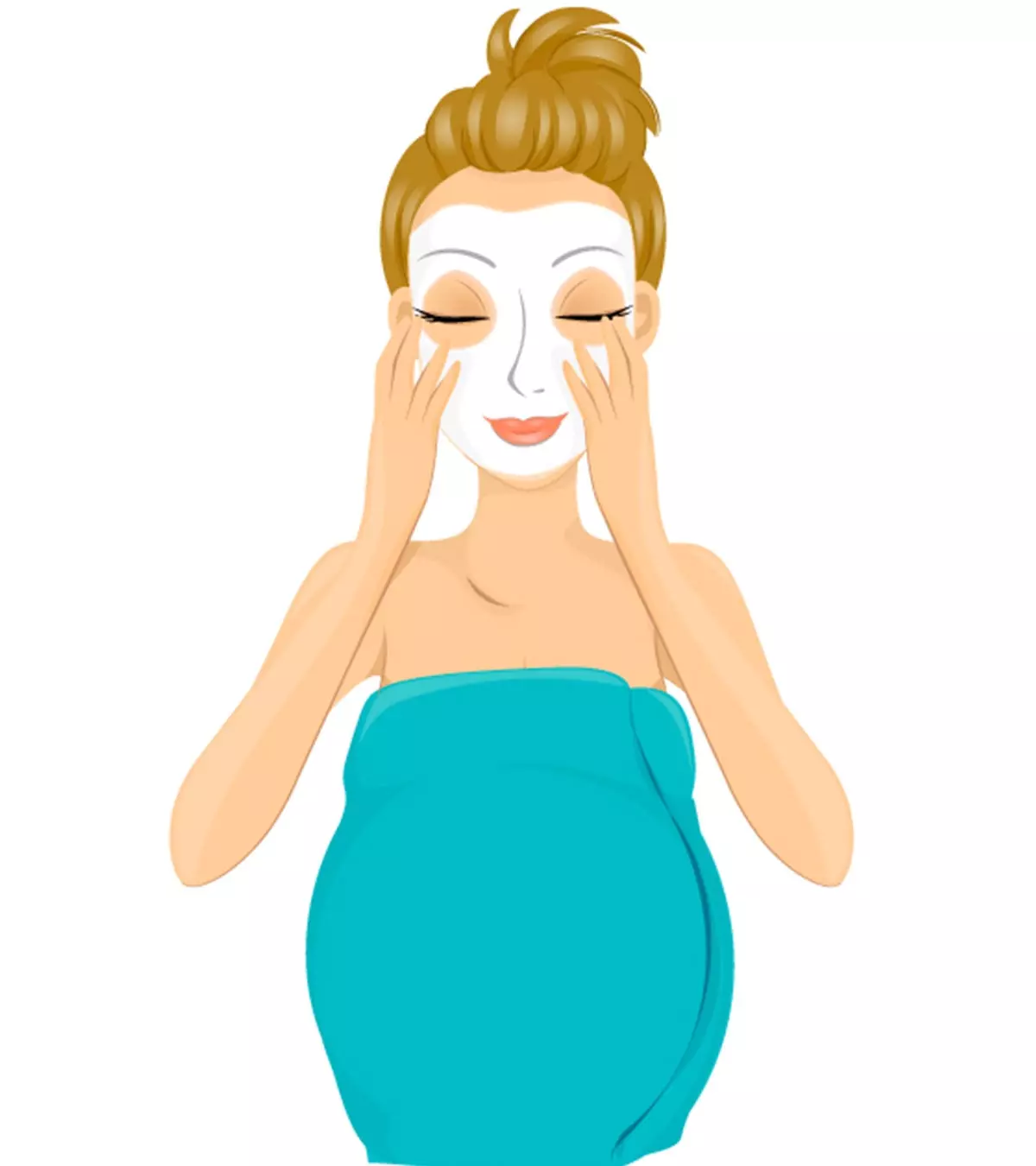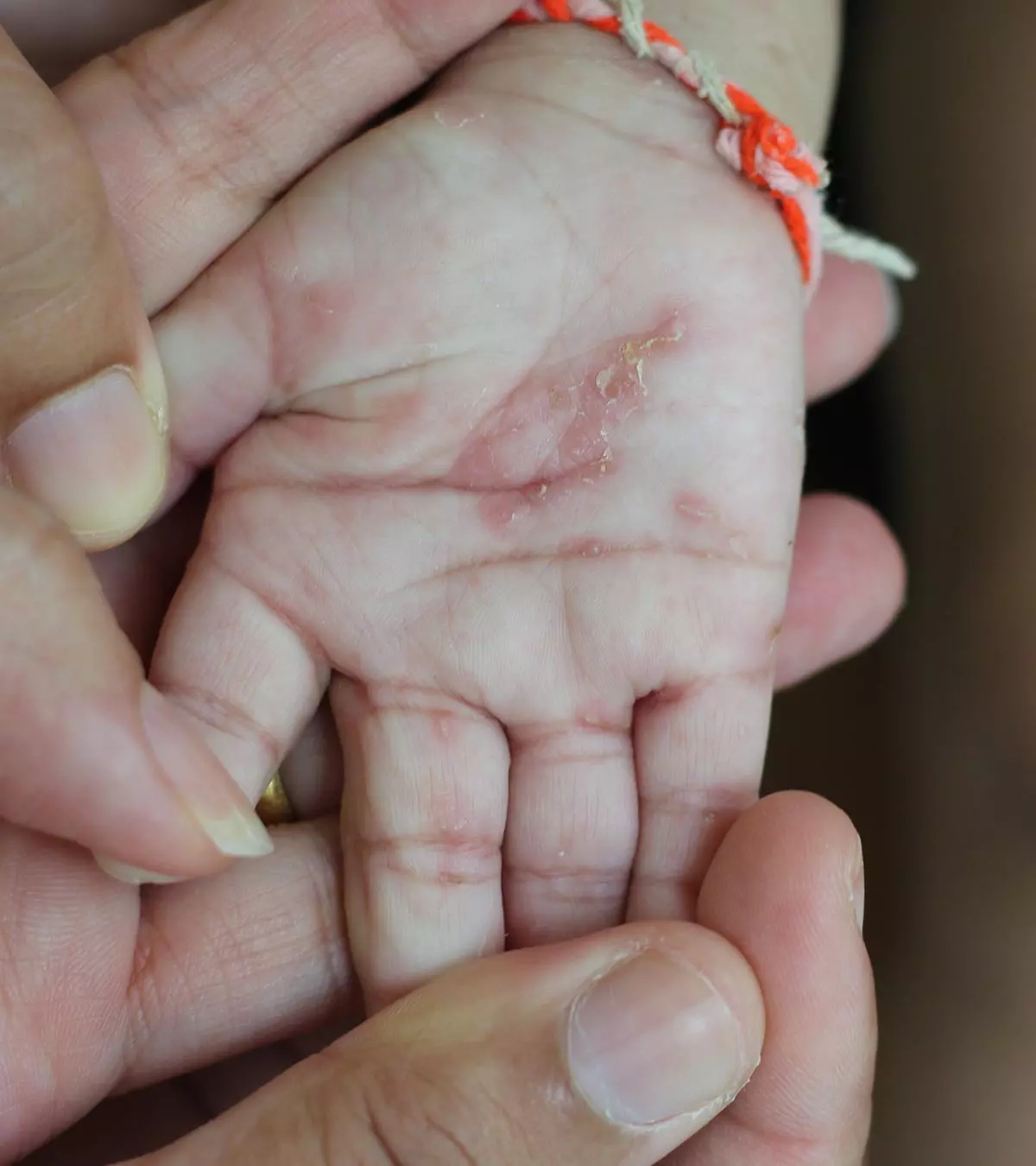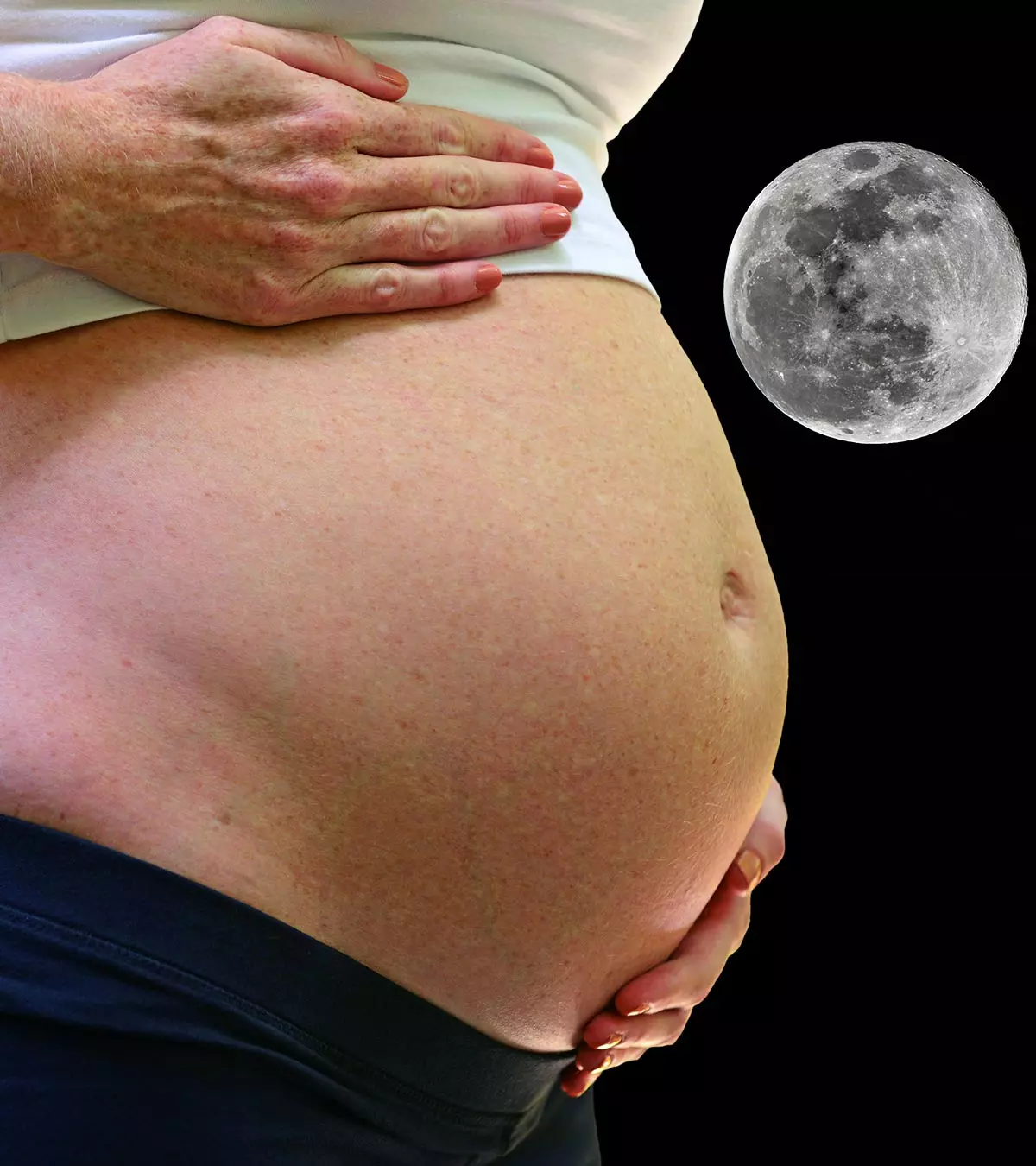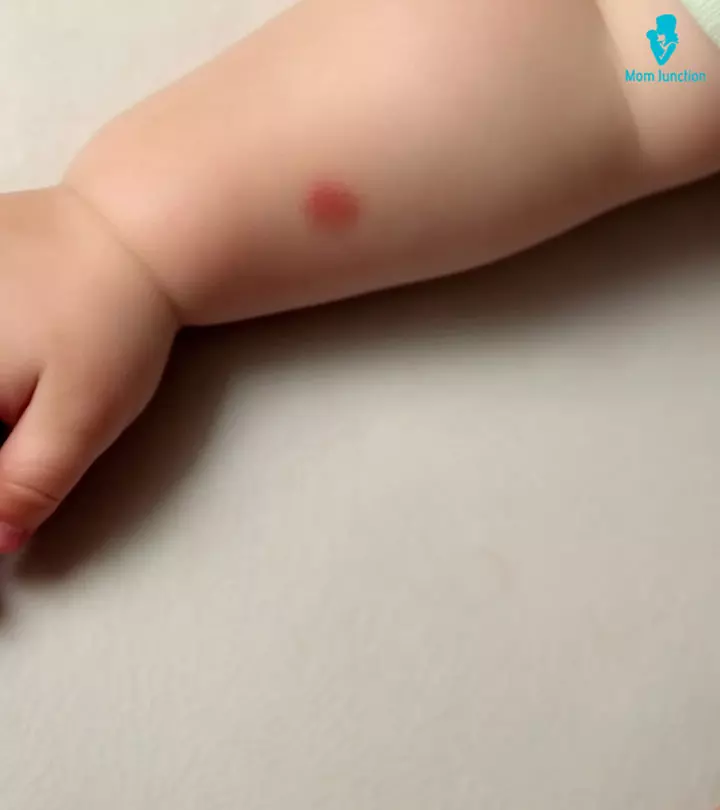
Image: ShutterStock
Dark circles under baby eyes are generally uncommon. However, they may not indicate a cause of concern, even if the condition is present. Most dark circles are not caused by poor health or infant sleep deprivation (1). Instead, some babies may have them due to the thin and sensitive skin around the eyes or because of genetics, as they may have inherited the trait from their parents. However, if you notice dark circles in your babies, it is advisable to consult a doctor to rule out the chances of having an underlying issue. This post explains the possible causes of dark circles in babies and answers some commonly asked questions related to the topic.

Key Pointers
- Dark circles, although uncommon in babies, may be caused due to various factors, including sleeplessness, skin pigmentation, and genetic factors.
- Some more causes are certain allergies, dehydration, nasal congestion, eczema, and infections.
- Ensuring sufficient sleep, proper nutrition, and avoiding irritants may improve the appearance of dark circles.
- If the condition is severe and persistent, a pediatrician consultation is recommended to rule out any underlying health conditions and for timely and suitable treatment.
What Are Dark Circles?
Dark circles are dark blemishes around the eyes. They could be a signal of some inconvenience or an allergy, and rarely a critical condition. The skin around the eyelids is called the periorbital skin. If the dark circles are caused due to higher than usual melanin production, it is called ‘periorbital hyperpigmentation’ (2).
Are Dark Circles In Babies Normal?
Dark circles under baby eyes are quite common and not always a cause for worry. These may appear due to a number of causes ranging from nasal congestion due to allergies to persistently itching the eye. A baby rubbing eyes due to overtiredness may cause the sensitive skin under the eyes to turn red. In rare cases, the baby may even end up scratching themselves while itching at their face causing the area to turn dark. Dark circles under the eyes could also be hereditary, where the paleness of their skin causes veins to be prominently visible (1). In some babies, the skin under the eyes may also appear puffy and dark from lack of sleep, excessive exposure to sunlight or ultraviolet rays, and dehydration (11). Pediatrician and neonatologist Dr. Supriya Wakchaure says, “Dark circles in babies are often harmless and can be influenced by several everyday factors. Genetics plays a big role. Babies with fair or thinner skin tend to show more prominent blood vessels under the eyes, which creates a shadowed or darkened appearance. In these cases, it’s purely a cosmetic observation and not linked to any underlying health issue. However, persistent or deepening dark circles shouldn’t be ignored entirely.”
Identifying the reason behind the dark circles may allow parents to determine a safe and effective home remedy. However, there is no harm in consulting a pediatrician if you feel worried about your baby’s dark circles.
What Causes Dark Circles Under Baby’s Eyes?
According to Pediatrician Dr. Cindy Gellner from the University of Utah Health, dark circles under the baby’s eyes can often result from sleep issues or nasal congestion (3).
Babies might get dark circles from exposure to allergens or irritants. Here is a list of a few possible reasons for dark circles in babies:
- The thin and sensitive skin under the eyes makes blood vessels look darker. It is the most common cause.
- A few babies may have comparatively thinner skin than others, making dark circles more noticeable.
- Dark circles might be an inherited trait and run in families. In this case, the baby could get them.
- Congestion of the nose might lead to an obstruction in the veins, leading to reduced blood flow, which can cause the veins under the eyes to swell. Swollen baby eyes can make dark circles more prominent.
 Did you know?
Did you know?- Tiredness in babies could be another cause of dark circles. The complexion of a tired baby might be pale, resulting in the darker appearance of blood vessels beneath the skin under the eye.

- In rare cases, allergic conditions, eczema, bacterial infections in the sinuses, respiratory infection, or dehydration could also cause dark, bluish circles under the eyes in babies (4).
In extremely rare cases, bulging and dark circles around the eyes may mean a tumor of the nerves. The condition is called neuroblastoma (5). According to the UCSF Benioff Children’s Hospitals, dark circles may indicate neuroblastoma spread to the area behind the eye (6).
Dark circles are not uncommon, so generally, nothing needs to be done. If the baby is eating well, has a healthy weight gain, and is sleeping well, there is generally no need to be concerned. However, you may take some simple measures to manage them.
Measures To Take For Dark Circles In Babies
You may try these remedies at home for dark circles under baby eyes (11):
- It is important to address sleep disturbance in infants and ensure that the baby sleeps enough, eats well, is active, and shows healthy weight gain.

- If allergies are the cause, protect your baby from potential irritants like pollen, dust, etc to avoid sinus congestion. Clean your baby’s eyes using a wet washcloth and warm water.
- Clip their nails to avoid scratches on the face and eyes.
- Gently massaging the area around the eyes in a circular motion may aid in blood circulation. You may use a baby-safe moisturizer or coconut oil to prevent friction.
- Apply a cold compress to the baby’s eyes with chilled cotton balls, wet cloth, spoons, tea bags, or cucumber slices to reduce puffiness and improve circulation.
When To See A Doctor?
You may take your baby to a doctor if they (3):
- Do not eat or sleep well or are constantly unhappy.
- Suddenly dark rings develop.
- Have a constantly running nose.
- Have watery, red, or itchy eyes.
- Have a constantly itchy nose, and sneeze more than is considered normal.
- Dark circles continue to occur despite taking care measures.
 Caution
CautionCan Dark Circles In Babies Be Treated?
Dark circles under baby eyes can be treated by treating the cause (1) (2).
- In case your baby has developed dark circles due to nasal congestion, administering medications to relieve the congestion is the solution.
- Likewise, if your baby has developed dark circles due to allergies, then treating the allergy with antihistaminesiA medication that treats allergies by blocking the effects of histamine and keeping the baby away from allergens is the ultimate solution.
- A doctor may prescribe topical depigmenting agents for hyperpigmentation caused by other factors such as edema and genetics.
Whatever may be the cause, the right diagnosis, and prompt treatment, could help in managing and treating dark circles in babies.
Whatever may be the cause, the right diagnosis, and prompt treatment could help in managing and treating the dark circles in babies.
Frequently Asked Questions
1. Are puffy eyes in babies linked to dark circles?
Puffy eyes could be due to a long crying spell or sleeping in an awkward position. They are mostly not related to dark circles.
2. Is there any relation between under-eye bags and dark circles?
Under-eye bags could just be the fat under your baby’s skin and may not be associated with dark circles.
3. Are dark circles associated with fever and teething?
Parents often associate dark circles with teething and fever. However, this is not definitive as there is no concrete evidence or research.
4. Why do I sometimes see redness under my baby’s eyes?
Redness under a baby’s eye can be the result of several reasons, such as allergies, infection, irritation, or simply because the baby is rubbing the eye when tired. Babies can be sensitive to food or airborne particles and could display redness under the eyes as an allergic reaction to the substance.
6. Are dark circles related to liver disease in babies?
There is no evidence to show that liver disease can cause dark circles in babies. However, liver disease causes the skin to bruise easily (9) (10). It is always best to consult your doctor for a proper diagnosis.
7. How can I help prevent dark circles under my baby’s eyes?
In some cases, such as excessive melanin, you can do nothing except let the skin become lighter as time passes. However, if your baby has dark circles due to nasal congestion or less sleep, you can help take steps to relieve their trouble. You can also frequently trim your baby’s nails so they don’t bruise themselves.
8. Why does my baby have purple under eyes?
Dr. Leah Alexander, a pediatrician from Fairview, New Jersey, explains, “The outermost layer of skin, known as the epidermis, is much thinner in infants, especially during the newborn period. This thinness makes the blood vessels within the middle layer (dermis) more visible. Consequently, the eyelids or skin under the eyes may develop a purple or reddish hue.”
Dark circles under baby eyes could be due to the same factor in adults – a lack of proper sleep or nasal congestion. Observe if there are any other accompanying signs to the dark circles. The treatment usually depends on the cause. For example, promoting a good sleeping schedule, treating nasal irritation, and reducing contact with potential allergens could reduce dark circles in babies. However, since it is not a common condition in babies, you can consult a pediatrician to find the cause.
Infographic: When Are Dark Circles In Babies A Cause For Concern
Several factors contribute to dark circles in babies, including poor health, little sleep, and thin and sensitive skin. However, in most cases, these circles self-resolve. The infographic below outlines specific conditions for which you should see your child’s pediatrician immediately. You may save and share it with other parents too!
Some thing wrong with infographic shortcode. please verify shortcode syntax
Illustration: Is It Normal For Babies To Have Dark Circles Under Their Eyes?

Image: Dalle E/MomJunction Design Team
Dark circles are synonymous with a lack of sleep but this phenomenon may be caused by other reasons as well. Learn more about the causes and treatments for dark circles in this video.
References
1. Dark circles under the eyes; About Kids Health
2. Rashmi Sarkar et al.; Periorbital Hyperpigmentation: A Comprehensive Review; National Center For Biotechnology Information (2016)
3. What Are Those Dark Circles Under My Child’s Eyes?; University Of Utah Health
4. Eye Allergy; American College of Allergy, Asthma and Immunology
5. Pediatric Neuroblastoma; Children’s National
6. Neuroblastoma; UCSF Benioff Children’s Hospitals
7. Ellen C Gendler, MD; Treatment of Periorbital Hyperpigmentation; OXFORD ACADEMIC (2005)
8. Dermatology; Rady Children’s Hospital – San Diego
9. Cirrhosis of the Liver; Cleveland Clinic
10. Vibhu Mendiratta et al., Study of Causative Factors and Clinical Patterns of Periorbital Pigmentation; National Center For Biotechnology Information (2019)
11. Dark Circles Under Eyes; Cleveland Clinic
Community Experiences
Join the conversation and become a part of our nurturing community! Share your stories, experiences, and insights to connect with fellow parents.
Read full bio of Jenni Johnson

Dr. Supriya Wakchaure is a renowned pediatrician and neonatologist from Surat, Gujarat, India. She has worked at top medical colleges and government hospitals, including KEM Hospital, Mumbai and Civil Hospital, Surat. She has presented various research papers. Dr. Wakchaure is the founder of several mother-support groups. Her services include growth and development evaluation management, allergy testing, tonsillitis treatment, congenital disorders evaluation and treatment, among others.
Dr. Supriya Wakchaure is a renowned pediatrician and neonatologist from Surat, Gujarat, India. She has worked at top medical colleges and government hospitals, including KEM Hospital, Mumbai and Civil Hospital, Surat. She has presented various research papers. Dr. Wakchaure is the founder of several mother-support groups. Her services include growth and development evaluation management, allergy testing, tonsillitis treatment, congenital disorders evaluation and treatment, among others.
- Dr. Leah Alexander is a board-certified pediatrician who provides medical care in an outpatient setting in Fair Lawn, New Jersey. She has also been working as a pediatrician with Medical Doctors Associates at Pediatricare Associates, New Jersey, since 2005. Dr. Alexander holds a bachelor's degree in Health Science from Kalamazoo College and a Doctor of Medicine degree from Michigan State University.
 Dr. Leah Alexander is a board-certified pediatrician who provides medical care in an outpatient setting in Fair Lawn, New Jersey. She has also been working as a pediatrician with Medical Doctors Associates at Pediatricare Associates, New Jersey, since 2005. Dr. Alexander holds a bachelor's degree in Health Science from Kalamazoo College and a Doctor of Medicine degree from Michigan State University.
Dr. Leah Alexander is a board-certified pediatrician who provides medical care in an outpatient setting in Fair Lawn, New Jersey. She has also been working as a pediatrician with Medical Doctors Associates at Pediatricare Associates, New Jersey, since 2005. Dr. Alexander holds a bachelor's degree in Health Science from Kalamazoo College and a Doctor of Medicine degree from Michigan State University.
Read full bio of Dr. Ritika Shah
Read full bio of Rohit Garoo
Read full bio of Shinta Liz Sunny


















